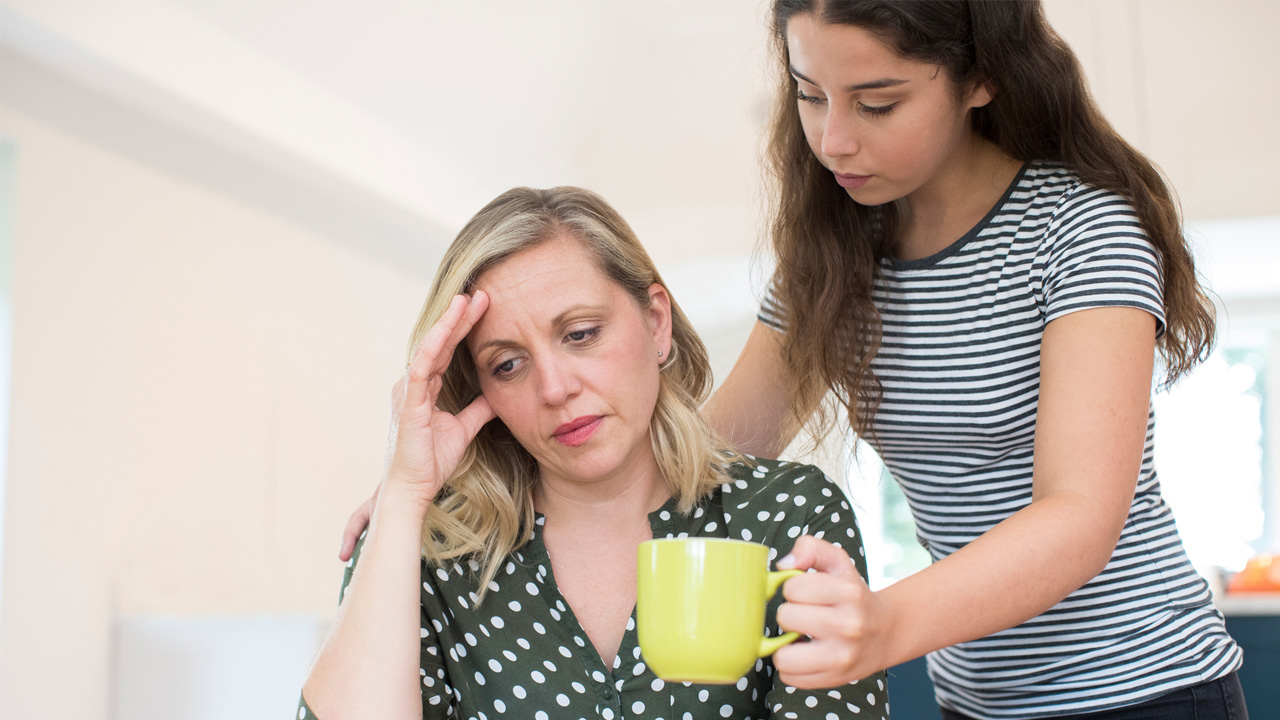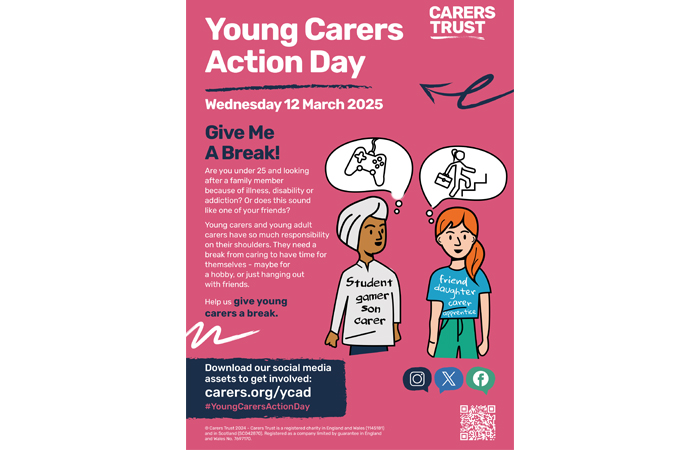In Campaigns
Follow this topic
Bookmark
Record learning outcomes
Carers are those who regularly look after someone who cannot look after themselves. This could be due to illness, age or disability, and depending on how dependent the person they are caring for is, the carer’s responsibilities can amount to that of a full-time job – oftentimes being demanding even more than that. While there are many people who work as full-time carers and get paid, there are around six million unpaid carers in the UK according to the Carers Trust. Moreover, three in five people will be unpaid carers at some point in their lives.
Young Carers Action Day is an awareness day which highlights the young carers in the UK who balance school, university, running a household, looking after their loved one and their own obligations. We spoke to Vicky Morgan, Carers Trust’s head of young carers and young adult carers for more information on this important initiative.
Young Carers Action Day
“Young Carers Action Day started out as Young Carers Awareness Day in 2015. Ten years and a name change later, it’s still going and is now bigger than ever. It’s organised and led by Carers Trust working with young carers and young adult carers to make sure it has them at its heart,” says Vicky. “We always encourage as many organisations, communities and individuals as possible to take part. We want everyone to know not only about the challenges that these group of young people face, but also how they can help young and young adult carers in their day-to-day work.” Young Carers Action Day takes place on Wednesday, 12 March this year.
Many young and children carers go unnoticed, requiring them to balance their different duties alone. Carers Trust is moving to change that. “The day aims to support and raise awareness of all the young and young adult carers in the UK. There are around one million children and young people aged under 18 looking after people with an illness, disability or addiction, and many more young adults do the same,” says Vicky. “Incredibly, there are 15,000 children, including 3,000 aged just five to nine, spending 50 hours or more a week on their caring role. Just imagine doing all that caring at home on top of going to school every day. It can have a devastating impact on their education, wellbeing and future job prospects. Young Carers Action Day is all about highlighting those challenges and showing why young and young adult carers need far more support.”
This year’s theme
To help drive the day’s mission, the theme for this year is “Give Me A Break”. The phrase is usually one we are accustomed to hearing adult’s say, but not children and young people – and this is the way it should be. For young carers, however, they have very little time for themselves despite being in the “carefree” years of their lives. The theme drives home the message that those caring for others also need some time for self care. “For some [young carers], their only break from caring is when they’re at school,” says Vicky. “What they need is time out from their caring responsibilities. But they also need a break in life from schools, colleges, universities or employers. That includes providing more school support for young carers, recognising that their home responsibilities can make balancing schoolwork with care overwhelming.”
Pharmacy’s role
Pharmacies can play a crucial role in supporting young carers, not only by displaying Young Carers Action Day posters and leaflets in the pharmacy, available from carers.org, but almost by “[reaching] out to local carer services supporting young carers and create those links at a local level,” says Vicky. Local carer services can be found on carers.org or on the local council’s website.
“Pharmacies can train staff on how to identify young carers, giving them the skills to start conversations, and know how to refer young carers to local support. That could include noticing when they’re collecting prescriptions or through conversations with those who have health needs. Local carer services can help with identification, so do reach out to them,” advises Vicky. “Pharmacies should also have one or more staff members who are responsible for identifying communicating with, and supporting, carers of all ages. Staff can also facilitate young carers drop-ins to the pharmacy to answer any questions they may have.”
If pharmacy teams wish to go a step further, they can also sign the Young Carers Covenant, a UK-wide commitment to young and young adult carers which sets out 10 things which young carers have said are key to improving their lives. More information for this can also be found at carers.org/campaigning-for-change. But, as Vicky says, “it’s important that support for young carers and young adult carers doesn’t stop after Young Carers Action Day” – teams can show support for these young carers, some being as young as five years old, throughout the year.
Health Equality Award
Did you know that the Recognition of Excellence has a Health Equality category? Created to reward those who have taken the steps to address health inequalities in their neighbourhoods, communities or even wider society, the award acknowledges an individual’s outstanding commitment to provide care by working against boundaries that may come between a person and the care they deserve.
Making changes in the pharmacy to better support and help young carers would be an example of a Health Equality Award entry.
You can enter yourself or nominate a colleague – in this category or one of the eight others – at roeawards.co.uk. Entries close 4 April.



